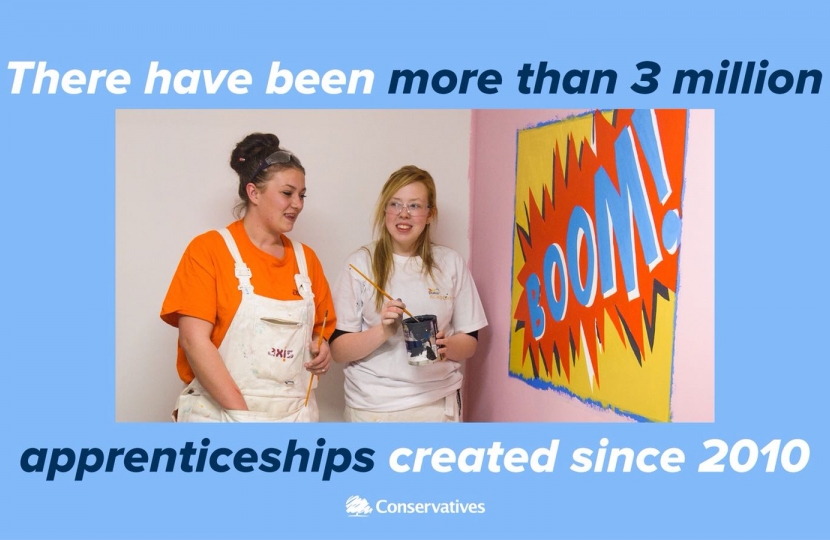
This National Apprenticeship Week, Simon Fell, Conservative Spokesman for Barrow and Furness, is celebrating the vital contribution of apprentices in Barrow & Furness.
Since 2010 there have been 8930 apprenticeship starts in Barrow & Furness and over 1.2 million new apprenticeship starts nationally since 2015. Take up of higher-level apprenticeships in 2016-17 was up by nearly 35 per cent compared to 2015 -16. In Barrow and Furness there were 1,280 apprenticeship starts in 2016-17 alone.
Apprenticeships are at the heart of the Conservative Government’s strategy to expand opportunity and develop the skilled workforce the country needs. This includes working with industry to deliver an ambitious target of 3 million new apprenticeship starts by 2020.
But we know there is still more to do, which is why we recently launched an education and funding review that will help people make more effective choices between the different options available to them, promoting parity of esteem between technical and academic pathways.
Commenting, Simon Fell said: ‘Apprenticeships allow people to earn while they learn, and open doors to highly skilled, rewarding careers.
This Government’s reforms are not only increasing apprenticeship numbers, but also driving up the quality of apprenticeships, meaning they have real value in the jobs market.
This is vital for Barrow & Furness, as it ensures that people have an opportunity to gain the skills they need to work in our world-class employers and remain in our area.
Only the Conservatives are working hard to ensure everyone can get on in life, and go as far as their talents and hard work can take them.
Sources:
- There have been over 1.2 million new apprenticeship starts since May 2015, and the take up of higher-level apprenticeships in 2016-17 was up by nearly 35 per cent compared to 2015 -16 (Hansard, 1 February 2018, WA, link; Hansard, 10 January 2018, WA, link).
- The Government has set an ambitious target to deliver 3 million new apprenticeship starts by 2020, from May 2015. The Government’s strategy for achieving this is outlined in English Apprenticeships: Our 2020 Vision (English Apprenticeships: Our 2020 Vision, accessed 5 March 2018, link).
- Between 2010 and 2015, the Government created 2.38 million apprenticeships, which is more than double the number created by Labour in their last term. Between 2005-06 and 2009-10, there were 1,103,800 new apprenticeship starts (BIS, FE data library: apprenticeships, 11 September 2015, link; BIS Press Release, 14 October 2015, link).
- Employer-led apprenticeship reforms continue to improve the quality of apprenticeships. Supported by the Institute for Apprenticeships, employers are designing new, high quality apprenticeship standards to ensure apprenticeships are more responsive to their needs (Institute for Apprenticeships, accessed 5 March 2018, link).
- Apprenticeships are at the heart of Government’s broader skills agenda, and will sit alongside ‘T levels’ within a reformed vocational training system. T-Levels are technical qualifications which will be as rigorous and respected as A-Levels. They are being developed in partnership with industry professionals from companies including Rolls Royce, Fuijitsu and EDF to ensure they have real credibility (DfE, 11 October 2017, link).
- Under Labour, at least 350,000 young people were let down by courses which had ‘little or no labour market value’. In 2011, the independent Wolf Review found that ‘the staple offer for between a quarter and a third of the post-16 cohort’ was ‘a diet of low-level vocational qualifications, most of which have little to no labour market value’ (DfE, Review of Vocational Education – The Wolf Report, 3 March 2011, link).
This National Apprenticeship Week runs from 5 – 9 March, and is marked by events celebrating apprentices and encouraging more people and businesses to get involved. The theme of this year’s National Apprenticeship Week is ‘Apprenticeships Work’ (ESFA, 5 March 2018, link).

